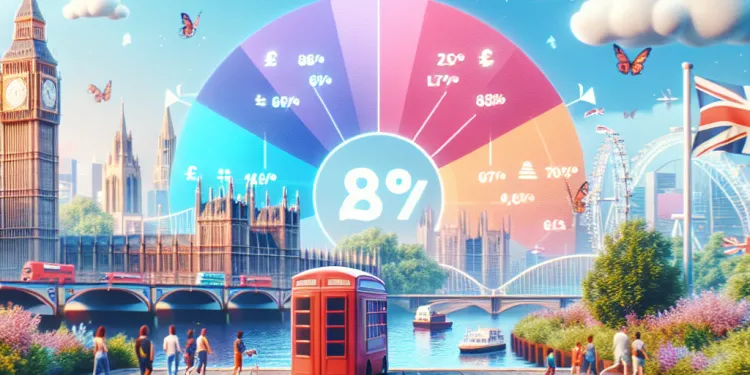
Find Help
More Items From Ergsy search
-
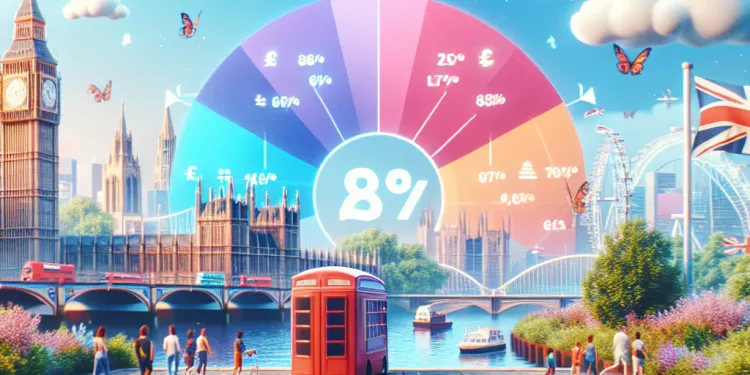
Is UK air quality changing?
Relevance: 100%
-

Are there mobile apps to track air quality and its impact on asthma?
Relevance: 67%
-

How do I check current air quality levels in my local area?
Relevance: 65%
-

UK Study Links Poor Air Quality to Increased Asthma Cases in Urban Areas
Relevance: 61%
-
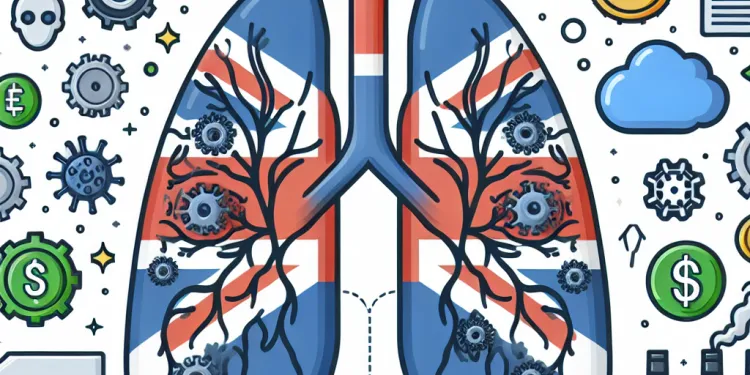
Air Pollution and Lung Cancer
Relevance: 52%
-

Where can I find information on air pollution and its effect on Asthma for my local area?
Relevance: 47%
-
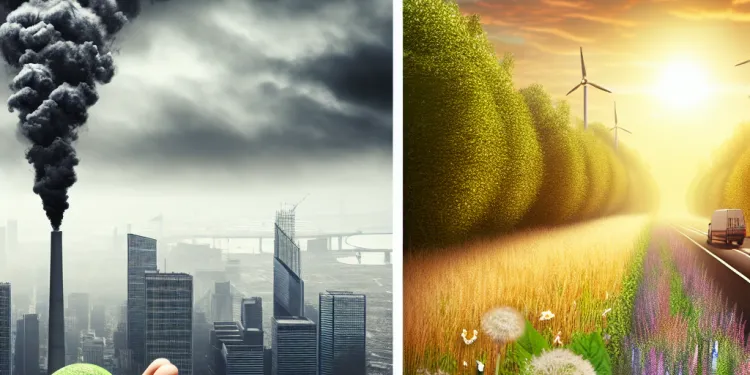
How does air pollution affect asthma?
Relevance: 46%
-

How can I find out if there are any air quality alerts in my area?
Relevance: 46%
-

High Air Pollution Levels Linked to Rising Cases of Respiratory Issues
Relevance: 44%
-

Is a prescription needed for air physiotherapy?
Relevance: 44%
-
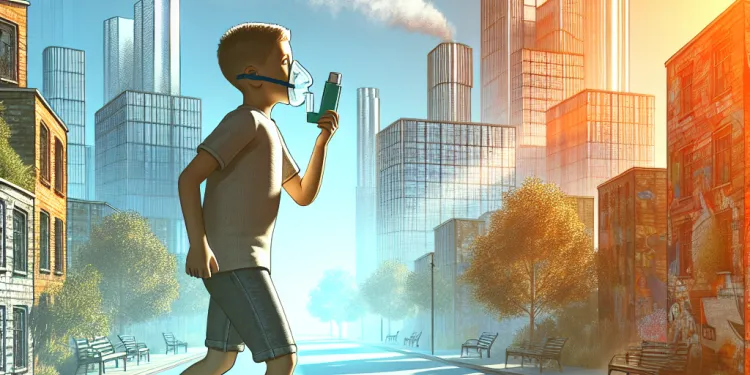
Rise in Childhood Asthma Linked to Air Pollution in Urban Areas
Relevance: 43%
-

Where can I find research studies on air pollution and asthma in my area?
Relevance: 43%
-

Are there any exercises involved in air physiotherapy?
Relevance: 42%
-

What is air physiotherapy?
Relevance: 42%
-

Does air physiotherapy involve medication?
Relevance: 42%
-

How does air physiotherapy work?
Relevance: 42%
-
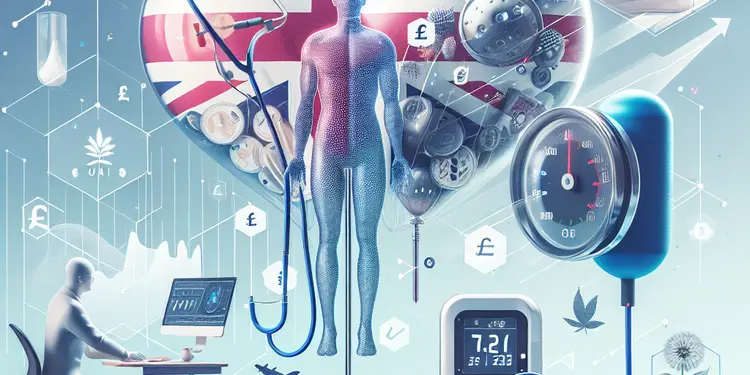
Who can benefit from air physiotherapy?
Relevance: 42%
-

What demographic showed the most significant change in sleep quality due to screen time?
Relevance: 41%
-
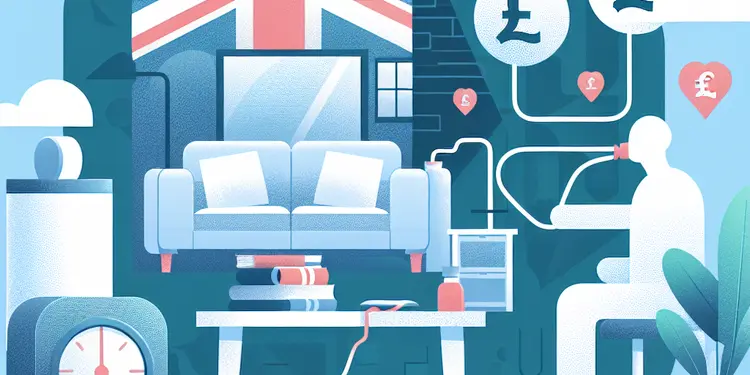
Can air physiotherapy be done at home?
Relevance: 41%
-

Can air physiotherapy prevent respiratory infections?
Relevance: 40%
-

What equipment is used in air physiotherapy?
Relevance: 40%
-

What qualifications should a provider of air physiotherapy have?
Relevance: 39%
-

How often should one perform air physiotherapy?
Relevance: 38%
-
Can air physiotherapy help with COVID-19 recovery?
Relevance: 38%
-

What should I do if I don't have air conditioning?
Relevance: 35%
-

How is the quality of live-in care monitored?
Relevance: 34%
-

How does sleep quality relate to menopause symptoms?
Relevance: 34%
-
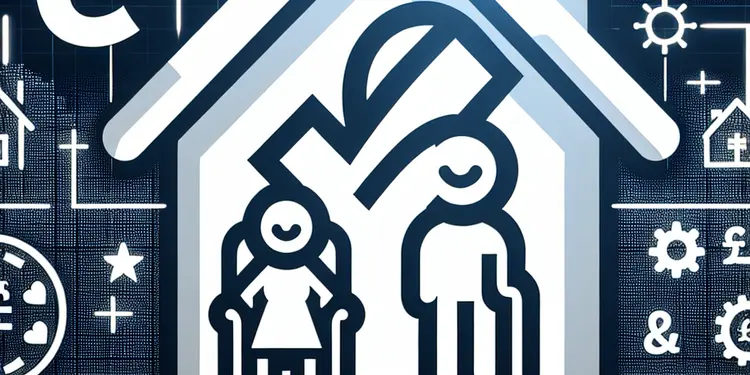
How is the quality of care regulated in care homes?
Relevance: 34%
-
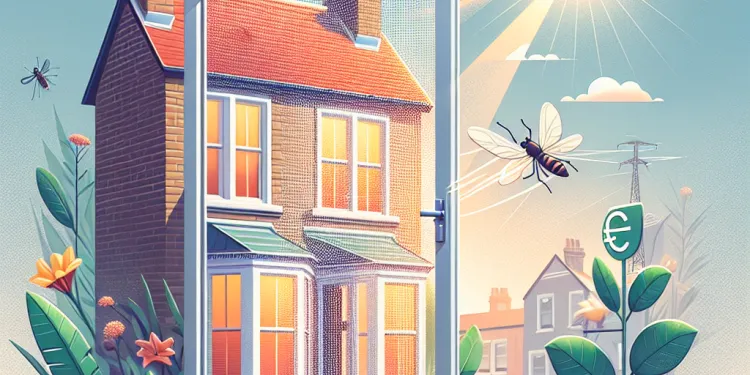
Will mosquito screens block out light or air?
Relevance: 33%
-

Are school meals inspected for quality and standards?
Relevance: 33%
-
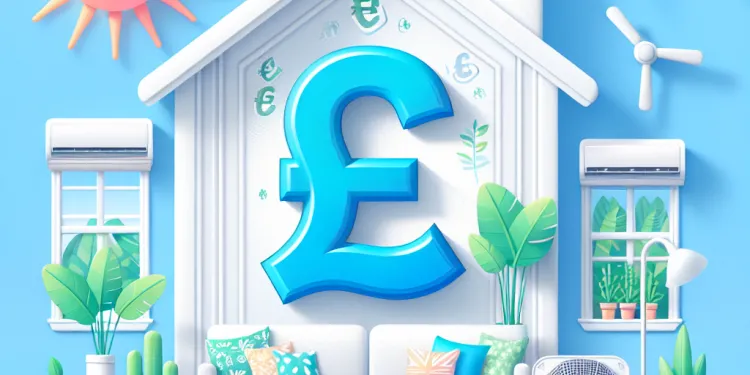
How can I keep my home cool without air conditioning?
Relevance: 32%
-

Is the video quality of a Ring Doorbell Camera good?
Relevance: 32%
-

What local organizations provide information on air pollution and asthma?
Relevance: 31%
-

Are some UK beaches rated better for water quality than others?
Relevance: 31%
-

Where can I find general information about air pollution and asthma?
Relevance: 30%
-

Study Shows Link Between Screen Time and Sleep Quality
Relevance: 30%
-

How can I reduce my exposure to air pollution if I have asthma?
Relevance: 30%
-
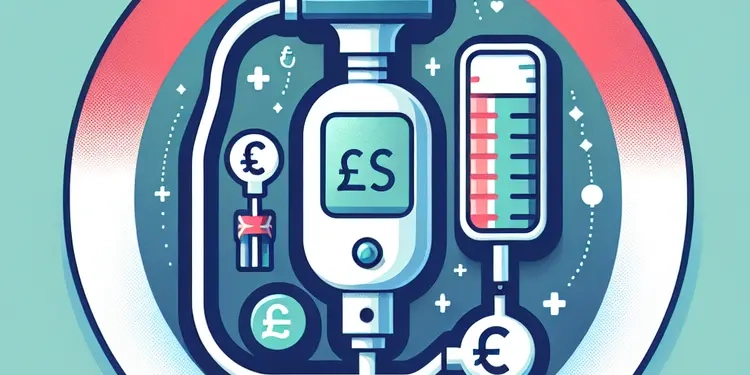
What is an incentive spirometer in air physiotherapy?
Relevance: 30%
-

What local organizations provide information on air pollution and asthma?
Relevance: 29%
-

Can reducing screen time improve sleep quality?
Relevance: 29%
Overview of UK Air Quality
Air quality in the UK has been a subject of considerable attention and concern over the past decades. The UK government, along with environmental agencies and non-governmental organizations, has worked towards monitoring and improving the quality of air across the country. This concerted effort stems from a recognition of the adverse health impacts of air pollution, as well as its contribution to environmental problems such as climate change.
Trends in Air Pollution
The UK has seen significant changes in air quality in recent years. Due to stringent regulations and cleaner technologies, emissions from industries and transportation have reduced notably. Major pollutants that have seen a decline include nitrogen dioxide (NO2) and sulphur dioxide (SO2). The decline in these pollutants is largely attributable to cleaner vehicle technologies and stricter environmental regulations on industrial emissions.
Particulate matter (PM), another significant pollutant, has also shown a decreasing trend in terms of concentration levels in many urban and rural areas. However, despite these improvements, levels of pollution, especially in major urban centers like London, still occasionally exceed legal limits. These episodes are often exacerbated by factors such as vehicle emissions and the burning of solid fuels.
Government Policies and Initiatives
The UK government has implemented various measures aimed at further improving air quality. Key among these initiatives is the implementation of Clean Air Zones in several cities. These zones aim to reduce pollution levels by discouraging the use of older, more polluting vehicles. Additionally, there is a push towards promoting electric vehicles (EVs), with significant investments into charging infrastructure and incentives for the adoption of EVs.
The government has also committed to international climate agreements and has set ambitious targets for reducing carbon emissions. These efforts are expected to contribute to a reduction in air pollution as renewable energy sources replace fossil fuels.
Challenges and Future Outlook
Despite progress, challenges remain in ensuring clean air across the UK. Urban areas continue to grapple with traffic emissions, and there is an ongoing debate about the impact of agriculture and residential heating on air pollution levels. The rise in wood-burning stoves and the continued use of fossil fuels in some sectors pose notable challenges to improving air quality further.
Looking ahead, the path to cleaner air is likely to be driven by technological innovations, public awareness, and continued policy interventions. Monitoring and reporting mechanisms are crucial to understanding and managing air pollution levels. Furthermore, collaboration between government, industry, and the public will be essential in achieving sustained improvements in air quality.
UK Air Quality Overview
Air in the UK has been a big concern for many years. The UK government and other groups are working hard to make the air cleaner. This is because polluted air can make people sick and also harm the environment, like making climate change worse.
Changes in Air Pollution
Air in the UK has gotten better in recent years. This is because of strict rules and cleaner technology. There is less pollution from factories and cars. Two bad chemicals, nitrogen dioxide (NO2) and sulphur dioxide (SO2), have gone down a lot. This is thanks to cleaner cars and better rules for factories.
There is also less dust and tiny bits in the air in many places. But, sometimes cities like London still have too much pollution. This happens because of car fumes and people burning things like wood.
Government Actions and Plans
The UK government is doing many things to make the air cleaner. They created Clean Air Zones in some cities to cut down pollution. These zones try to keep older, dirtier cars away. The government is also supporting electric cars by building places to charge them and giving money to help people buy them.
The UK is working with other countries to reduce pollution and has big plans to cut down on carbon pollution. This will help as the country uses more green energy instead of coal and oil.
Problems and the Future
There are still problems in making sure the air is clean everywhere. Cities struggle with car pollution, and there's talk about how farming and heating homes affect air quality. More people using wood stoves and some still burning coal is a big challenge.
The future of cleaner air will need new technology, more awareness, and good rules. We need to keep checking pollution levels to manage them. Working together—government, businesses, and people—is key to keeping the air clean for everyone.
Frequently Asked Questions
Is UK air quality improving?
Overall, air quality in the UK has been improving in recent years due to stricter emissions regulations and cleaner technologies.
What are the main pollutants affecting UK air quality?
The main pollutants are nitrogen dioxide (NO2), particulate matter (PM10 and PM2.5), sulfur dioxide (SO2), carbon monoxide (CO), and volatile organic compounds (VOCs).
How does air pollution affect health in the UK?
Air pollution can cause respiratory problems, cardiovascular diseases, and exacerbate asthma and other lung conditions. Long-term exposure increases the risk of serious health issues.
Has air quality improved since the COVID-19 pandemic?
During the pandemic, air quality temporarily improved due to reduced transportation and industrial activity, but levels have since risen as activities resumed.
What measures are being taken to improve air quality in the UK?
The UK government has implemented clean air zones, stricter vehicle emissions standards, and initiatives to encourage the use of electric vehicles.
How does UK air quality compare to EU standards?
The UK meets most EU air quality standards, though some urban areas still struggle with NO2 levels exceeding limits.
What role do vehicles play in air pollution in the UK?
Vehicles are a major source of NO2 and particulate matter emissions, especially in cities with high traffic congestion.
Are there regional variations in UK air quality?
Yes, urban areas generally have worse air quality than rural areas, with London and other large cities facing the most challenges.
What is the impact of industrial activity on UK air quality?
Industries contribute to emissions of NO2, SO2, and particulate matter, though regulations have led to improvements over the years.
How does air quality affect the environment in the UK?
Air pollution harms wildlife, damages ecosystems, and contributes to acid rain and climate change.
What is the UK government's air quality strategy?
The UK Air Quality Strategy sets out plans to reduce many pollutants, meet international commitments, and protect public health.
What is the Air Quality Index (AQI) in the UK?
The AQI is a measure used to communicate air quality levels to the public, with categories ranging from 'Low' to 'Very High' pollution.
How can individuals help improve air quality in the UK?
Individuals can reduce emissions by using public transport, cycling, walking, and reducing energy consumption at home.
What is London's Ultra Low Emission Zone (ULEZ)?
The ULEZ is an area in London with strict vehicle emissions standards to reduce pollution. It charges vehicles that do not meet these standards.
Are there air quality monitoring systems in the UK?
Yes, there are numerous air quality monitoring stations across the UK that provide real-time data on pollution levels.
What has been the trend in NO2 levels in the UK?
NO2 levels have generally decreased over the years, but some urban areas still face challenges in reducing them to acceptable levels.
How does burning of fossil fuels affect air quality in the UK?
Burning fossil fuels releases NO2, CO2, and particulates, contributing to poor air quality and climate change.
What policies are in place to tackle particulate matter pollution?
Policies include controlling emissions from industrial activities, promoting cleaner vehicles, and improving public transport systems.
What are the challenges in improving air quality in the UK?
Challenges include reducing traffic emissions, managing industrial pollution, and addressing pollution from domestic heating sources.
How does air pollution in the UK affect climate change?
Air pollutants such as CO2 and methane contribute to climate change, while black carbon from soot has a warming effect on the atmosphere.
Is the air in the UK getting cleaner?
Air in the UK is getting cleaner. This is because there are new rules to stop pollution and use better technology.
What makes the air dirty in the UK?
The air can be dirty because of certain things. These things are:
- Nitrogen dioxide (NO2): This is a bad gas from cars and factories.
- Particulate matter (PM10 and PM2.5): These are tiny pieces of dust and dirt that can be in the air.
- Sulfur dioxide (SO2): This gas comes from burning coal and oil.
- Carbon monoxide (CO): This gas comes from cars when they burn fuel.
- Volatile organic compounds (VOCs): These are gases that come from paints and cleaning products.
Tools like picture cards or apps that read text out loud can help you learn more about these things.
How does dirty air make people sick in the UK?
Dirty air can make people feel sick. Here’s how:
- Breathing Problems: It can make it hard to breathe.
- Coughs and Sneezes: You might cough a lot or get a runny nose.
- Headaches: Bad air can give you headaches.
- Feeling Tired: Some people feel very tired.
Ask a grown-up if you don’t feel well. They can help you.
Tools that can help:
- Pictures or videos about clean air.
- Apps that show when the air is dirty.
- Talk to someone about how you feel.
Dirty air can make it hard to breathe. It can hurt your heart and make asthma and other breathing problems worse. Being around dirty air for a long time can make you very sick.
What can help:
- Wear a mask on days when the air is dirty.
- Stay inside if you can when the air is bad outside.
- Use a fan with a filter to clean the air in your home.
Is the air better since COVID-19?
When the world got sick, the air was cleaner because people stopped driving cars and factories slowed down. But now, the air is not as clean again because cars and factories are busy once more.
What is being done to make the air cleaner in the UK?
Here are some steps the UK is taking:
- Using buses and cars that run on electricity.
- Planting more trees in cities.
- Asking factories to make less smoke.
- Encouraging people to walk or ride bikes.
Helpful tools:
- Use apps to find out how clean the air is.
- Learn more about clean air in simple books.
The UK government is making the air cleaner by doing a few things. They have made areas called "clean air zones" where the air needs to be cleaner. They have also made rules so that cars have to be less polluting. People are encouraged to use electric cars because they are better for the air.
Is the air in the UK as clean as the air in the EU?
The UK follows most of the EU rules for clean air. But in some cities, the air still has too much NO2, which is not good.
How do cars and trucks make the air dirty in the UK?
Cars and trucks make a lot of dirty air. This is especially bad in busy cities with lots of traffic.
Is air quality different in parts of the UK?
Does the air quality change in different parts of the UK?
Some parts of the UK have cleaner air than others. It's important to know where air quality is better or worse.
Use simple maps or pictures to help understand where air is cleaner or more polluted. These tools can make it easier to learn about air quality in the UK.
Yes, the air in big cities is often dirtier than in the countryside. Places like London have the most problems with bad air.
How does factory work affect the air we breathe in the UK?
Factories and companies put gases and tiny bits of dust into the air. These gases are called NO2 and SO2. Rules have helped make the air cleaner over time.
How does air quality change the environment in the UK?
Air quality means how clean or dirty the air is.
In the UK, if the air is not clean, it can hurt the environment. This means it can make plants and animals not healthy.
Dirty air can make water and soil unclean too. This is not good for trees, flowers, and creatures living there.
Tools to help understand better:
- Use pictures or videos to see what air pollution looks like.
- Try simple activities to learn about clean and dirty air.
Air pollution is bad for animals and nature. It can hurt plants, make harmful rain, and change the weather.
What is the UK government's plan for clean air?
The UK government has a plan to keep the air clean and safe. This helps everyone breathe healthy air.
Here are some things that might help you understand:
- Use pictures or drawings to show clean air activities.
- Ask someone to explain it in simple words.
- Watch a video about air pollution and how to stop it.
The UK Air Quality Strategy is a plan to make the air cleaner. It tells us how to reduce harmful stuff in the air, keep promises to other countries, and keep people healthy.
What is the Air Quality Index (AQI) in the UK?
The Air Quality Index, or AQI, tells you how clean or dirty the air is. It uses numbers and colours.
The AQI shows if you can go outside safely.
A good way to learn more about AQI is to look at pictures or videos on the internet.
You can also use apps on your phone to check the AQI where you live.
The AQI helps people know how clean or dirty the air is. It uses words like 'Low' to 'Very High' to tell us about the air pollution.
How can people help make the air cleaner in the UK?
Here are some ways:
- Walk or ride a bike instead of using a car.
- Take buses or trains to travel.
- Use electric cars if possible.
- Turn off lights and machines when not in use.
- Recycle and reduce waste.
- Plant trees and flowers.
These actions help keep the air clean. If you want help, you can use speech-to-text apps or ask someone to read with you.
People can help the planet by riding buses or trains, biking, walking, and using less energy at home.
What is London's Ultra Low Emission Zone (ULEZ)?
The Ultra Low Emission Zone, or ULEZ, is a special area in London. In this area, cars and trucks must follow strict rules about pollution. This helps keep the air clean.
If vehicles do not meet the rules, drivers have to pay a charge to drive in this area.
Tools like maps or apps can help drivers check if their vehicle can enter ULEZ without paying extra.
The ULEZ is a part of London where cars and vans need to be clean and not pollute a lot. If your car is too polluting, you have to pay money to drive there.
Can you find air check tools in the UK?
Yes, you can. The UK has tools to check air quality. These tools help you know if the air is clean.
Here are some ways to check the air:
- Websites: You can go online to see air info. Look for air check sites.
- Apps: You can download apps on your phone. They can show air quality.
- Maps: Some maps show where air is clean or dirty.
These tools help you stay safe. You can find out when to play outside or stay in.
Yes, there are lots of places in the UK where you can check the air quality. These places tell us about pollution right now.
What is happening with NO2 levels in the UK?
NO2 is a type of air pollution. It comes from cars and factories.
Are the levels of NO2 going up or down in the UK? Are they staying the same? Let's find out.
Here are some tips to help understand:
- Look at pictures or graphs. They can show changes over time.
- Ask someone to explain if it is hard to understand.
NO2 is a kind of gas in the air. Over time, there is less NO2 than before. But in some big cities, the air still has too much NO2, which is not good.
If you find reading hard, you can try using text-to-speech tools. These tools can read the words out loud for you. You can also use colored overlays on pages to help with reading.
How does burning fossil fuels change the air in the UK?
When we burn fossil fuels like coal, oil, and gas, it can make the air dirty.
Dirty air is not good for people. It can make it hard to breathe and make us sick.
There are things we can do to help: - Use cars less. Walk, cycle, or take the bus. - Save energy at home. Turn off lights when not using them.
Burning fuels like coal and oil makes bad gases like NO2 and CO2. These gases, along with tiny bits called particulates, make the air dirty and can change the weather.
What rules help clean up air pollution?
Rules help make less pollution. Factories make less smoke. Cars are clean and safe. Trains and buses are better.
What makes it hard to clean the air in the UK?
Cleaning the air can be hard because:
- There are cars and trucks that make the air dirty.
- Factories also put bad stuff into the air.
- Sometimes it costs a lot of money to clean the air.
- People need to work together to make the air better.
- The weather can make it harder to keep air clean.
Here are some things that can help:
- Use simple words or ask an adult if something is hard to understand.
- Use pictures or videos to learn more.
- Talk about it with friends or family.
There are problems we need to fix. We need to make less smoke from cars, keep factories cleaner, and find better ways to heat our homes without making lots of smoke.
How does dirty air in the UK change the weather of the Earth?
Some things in the air, like CO2 and methane, make the Earth warmer. This is called climate change. Black stuff from smoke, called soot, also makes the air hotter.
Useful Links
This website offers general information and is not a substitute for professional advice.
Always seek guidance from qualified professionals.
If you have any medical concerns or need urgent help, contact a healthcare professional or emergency services immediately.
Some of this content was generated with AI assistance. We’ve done our best to keep it accurate, helpful, and human-friendly.
- Ergsy carfully checks the information in the videos we provide here.
- Videos shown by Youtube after a video has completed, have NOT been reviewed by ERGSY.
- To view, click the arrow in centre of video.
- Most of the videos you find here will have subtitles and/or closed captions available.
- You may need to turn these on, and choose your preferred language.
- Go to the video you'd like to watch.
- If closed captions (CC) are available, settings will be visible on the bottom right of the video player.
- To turn on Captions, click settings .
- To turn off Captions, click settings again.
More Items From Ergsy search
-

Is UK air quality changing?
Relevance: 100%
-

Are there mobile apps to track air quality and its impact on asthma?
Relevance: 67%
-

How do I check current air quality levels in my local area?
Relevance: 65%
-

UK Study Links Poor Air Quality to Increased Asthma Cases in Urban Areas
Relevance: 61%
-

Air Pollution and Lung Cancer
Relevance: 52%
-

Where can I find information on air pollution and its effect on Asthma for my local area?
Relevance: 47%
-

How does air pollution affect asthma?
Relevance: 46%
-

How can I find out if there are any air quality alerts in my area?
Relevance: 46%
-

High Air Pollution Levels Linked to Rising Cases of Respiratory Issues
Relevance: 44%
-

Is a prescription needed for air physiotherapy?
Relevance: 44%
-

Rise in Childhood Asthma Linked to Air Pollution in Urban Areas
Relevance: 43%
-

Where can I find research studies on air pollution and asthma in my area?
Relevance: 43%
-

Are there any exercises involved in air physiotherapy?
Relevance: 42%
-

What is air physiotherapy?
Relevance: 42%
-

Does air physiotherapy involve medication?
Relevance: 42%
-

How does air physiotherapy work?
Relevance: 42%
-

Who can benefit from air physiotherapy?
Relevance: 42%
-

What demographic showed the most significant change in sleep quality due to screen time?
Relevance: 41%
-

Can air physiotherapy be done at home?
Relevance: 41%
-

Can air physiotherapy prevent respiratory infections?
Relevance: 40%
-

What equipment is used in air physiotherapy?
Relevance: 40%
-

What qualifications should a provider of air physiotherapy have?
Relevance: 39%
-

How often should one perform air physiotherapy?
Relevance: 38%
-
Can air physiotherapy help with COVID-19 recovery?
Relevance: 38%
-

What should I do if I don't have air conditioning?
Relevance: 35%
-

How is the quality of live-in care monitored?
Relevance: 34%
-

How does sleep quality relate to menopause symptoms?
Relevance: 34%
-

How is the quality of care regulated in care homes?
Relevance: 34%
-

Will mosquito screens block out light or air?
Relevance: 33%
-

Are school meals inspected for quality and standards?
Relevance: 33%
-

How can I keep my home cool without air conditioning?
Relevance: 32%
-

Is the video quality of a Ring Doorbell Camera good?
Relevance: 32%
-

What local organizations provide information on air pollution and asthma?
Relevance: 31%
-

Are some UK beaches rated better for water quality than others?
Relevance: 31%
-

Where can I find general information about air pollution and asthma?
Relevance: 30%
-

Study Shows Link Between Screen Time and Sleep Quality
Relevance: 30%
-

How can I reduce my exposure to air pollution if I have asthma?
Relevance: 30%
-

What is an incentive spirometer in air physiotherapy?
Relevance: 30%
-

What local organizations provide information on air pollution and asthma?
Relevance: 29%
-

Can reducing screen time improve sleep quality?
Relevance: 29%


